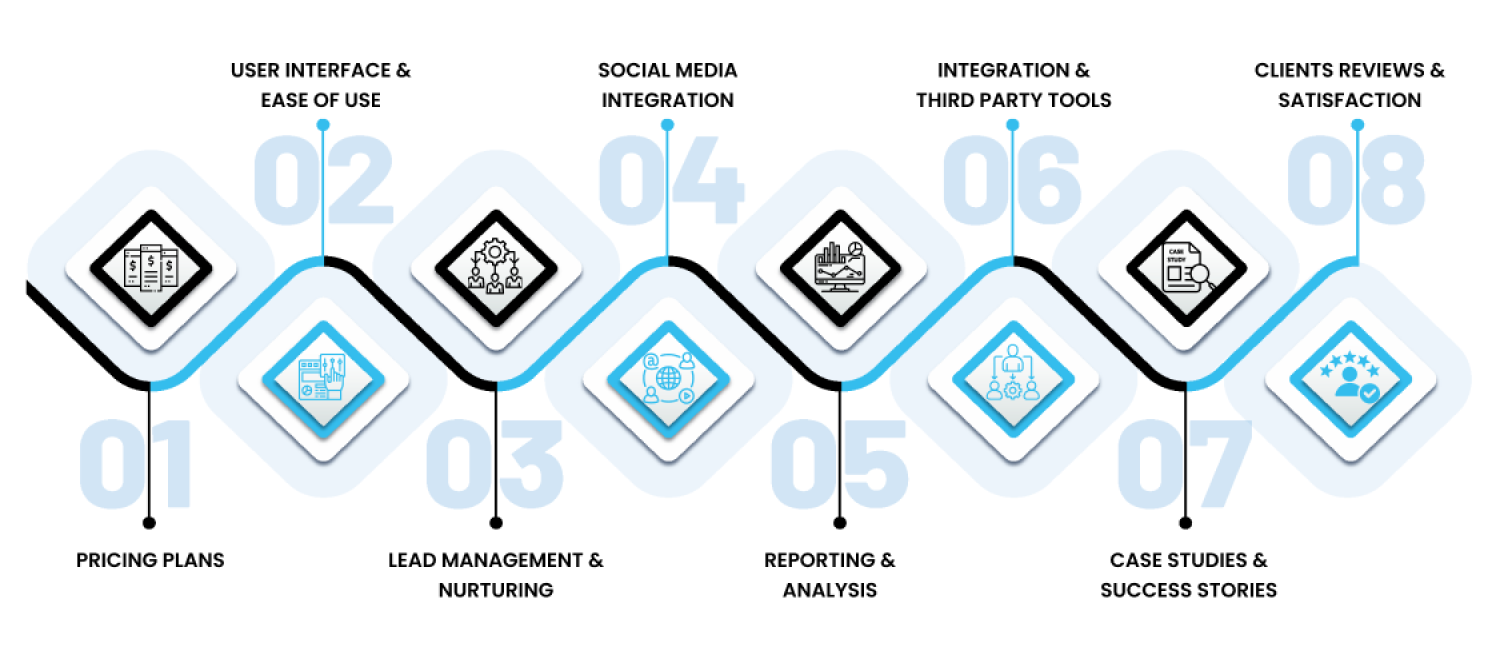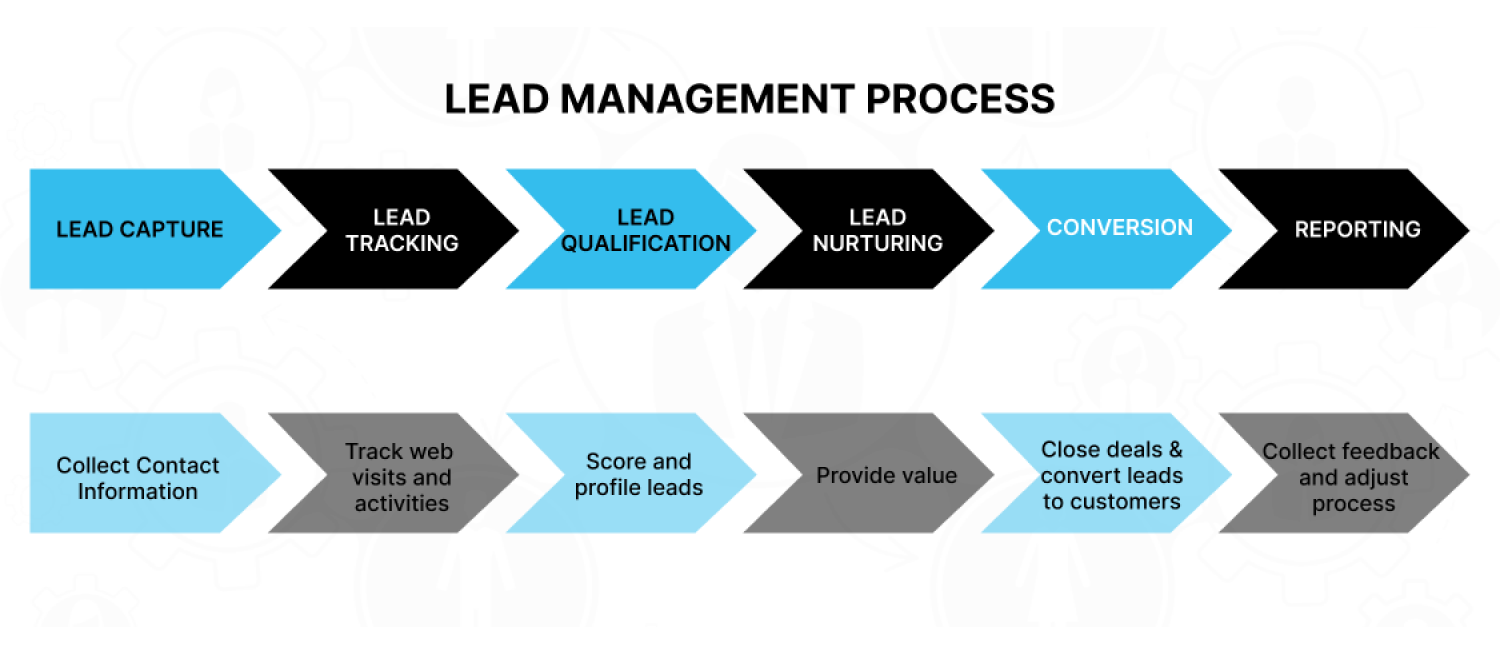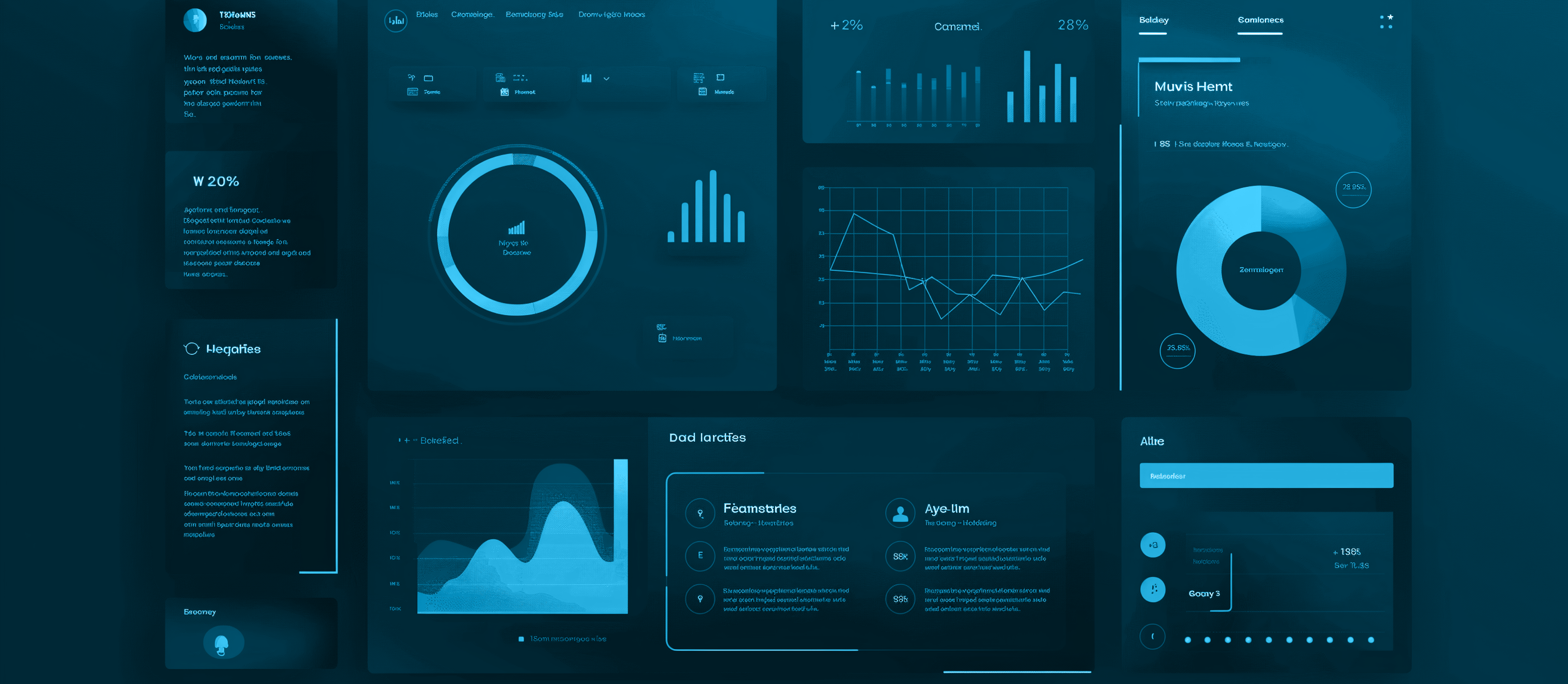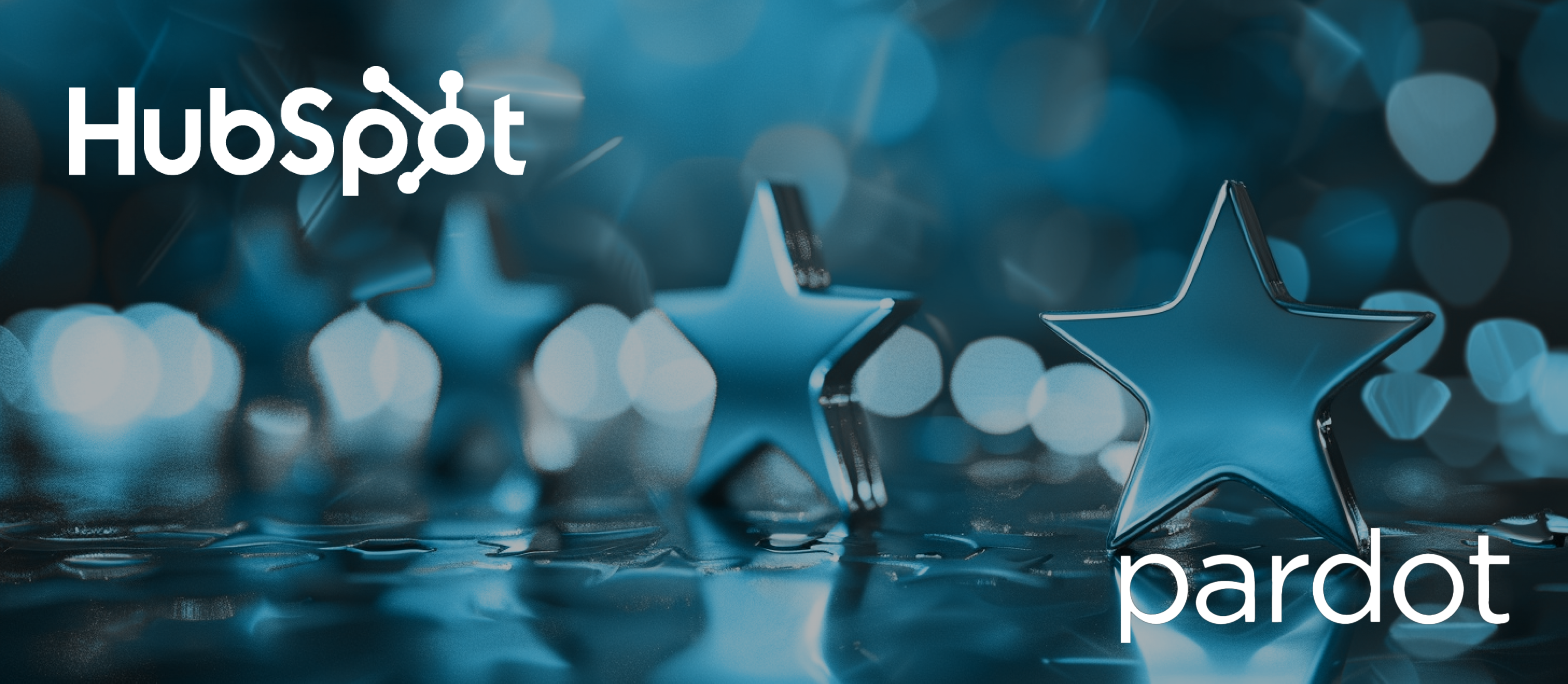Discovering the Ultimate Marketing Automation Solution for Your Business: HubSpot vs Pardot
Automation has become crucial in inbound marketing, enabling businesses to effectively interact with and involve their intended audience in today’s world.
HubSpot and Pardot are two of the most sought-after marketing automation platforms, offering many features and functionalities to streamline marketing efforts.
However, with this comprehensive guide, the decision-making process can be streamlined.
We will examine both platforms, HubSpot vs Pardot and compare their main features, pricing models, user interface, user-friendliness, lead management and nurturing capabilities, social media integration, reporting and analytics features, and third-party integrations.
This thorough comparison will provide you with the necessary information to make an informed decision. Additionally, we will study case studies, success stories, client reviews, and satisfaction levels from both platforms.
Finally, we will give our verdict on which platform is superior in the competitive world of marketing automation. This final verdict will provide you with a sense of reassurance and confidence in your choice.
HubSpot vs Pardot: A Quick Glance
HubSpot is a complete inbound marketing and sales platform that provides tools for managing content, social media marketing, email marketing, generating leads, and managing customer relationships.
The platform is highly regarded for its easy-to-use interface, powerful analytics, and extensive integration capabilities.
On the other hand, Pardot is a B2B marketing automation platform developed by Salesforce. Its primary focus is on lead generation, nurturing, and scoring, which helps businesses more seamlessly align their marketing and sales efforts.
Pardot is popular among B2B organizations due to its advanced features like lead tracking, dynamic content, and ROI reporting. Now, one question may come to your mind, “How do you choose the right one for your business?”
Well, surf down and let’s explore the critical competencies of both marketing automation giants, HubSpot vs Pardot, to choose the right one for you.
Key Features and Functionality

Marketing automation has become an essential tool for businesses of all sizes. Two of the top contenders in this field are HubSpot and Pardot.
These platforms offer diverse features and functionality to streamline marketing processes and drive results.
HubSpot is known for its user-friendly platform, easy-to-use email marketing tools, landing pages, social media management, and content creation.
On the other hand, Pardot’s strong suit is its robust lead management capabilities with advanced scoring and nurturing features.
Pardot’s integration with Salesforce gives it an edge for businesses using Salesforce as their CRM. HubSpot and Pardot provide robust analytics and reporting tools to monitor campaign performance and guide future strategies.
Choosing between the two, HubSpot vs Pardot, depends on your specific business needs and objectives.
Pricing and Plans
Pricing and plans are among the most critical factors when choosing the right marketing automation platform.
In this battle of marketing automation titans, HubSpot and Pardot offer a range of plans tailored to suit different business needs.
HubSpot offers a tiered pricing structure with their Starter, Professional, and Enterprise plans, while Pardot offers three main plans: Growth, Plus, and Advanced.
Both platforms offer various features within their different plans, such as email marketing, lead tracking, and social media management.
When deciding between these two industry giants, HubSpot vs Pardot it’s essential to carefully evaluate your business goals and budget to choose the plan that best suits your specific needs.
User Interface and Ease Of Use
When comparing marketing automation platforms like HubSpot and Pardot, user interface and ease of use are crucial.
Both platforms provide user-friendly interfaces, allowing marketers to navigate and utilize features effortlessly.
However, HubSpot’s platform has a more modern and visually appealing design, making it more engaging and enjoyable.
Its intuitive interface allows marketers to navigate and utilize features quickly. Pardot, on the other hand, may initially seem overwhelming due to its vast array of features, but once users become familiar with the layout, it offers powerful customization options.
Its interface is designed to cater to the needs of B2B marketers, with a focus on lead generation and nurturing.
Ultimately, both platforms offer an excellent user experience. The decision between them will depend on your personal preference and specific business needs.
This emphasis on your unique requirements puts you in control of the decision-making process.
Lead Management and Nurturing: HubSpot vs Pardot

Lead management and nurturing are crucial components of any successful marketing strategy. They track and organize potential customers, known as leads, throughout their journey from initial contact to becoming paying customers.
This process requires effective communication and personalized interactions with the leads to build trust, establish brand loyalty, and drive conversions.
In today’s saturated digital landscape, marketing automation tools are essential for businesses to efficiently manage and nurture their leads at every sales funnel stage.
This guide will compare HubSpot and Pardot marketing automation platforms regarding lead management and nurturing.
| HubSpot | Pardot | |
|---|---|---|
| HubSpot offers lead capture tools like forms, pop-up forms, and lead flows that are customizable and easy to embed. The form builder and HubSpot CRM integration allow lead capture and seamless data syncing. Additionally, HubSpot's SEO tools and content optimization features help attract organic traffic and convert visitors to leads. |
Pardot offers lead capture tools such as forms, landing pages, and gated content. Dynamic forms adapt to visitors' behavior, improving conversion rates. Advanced scoring and grading prioritize leads based on engagement and fit for sales teams. |
|
| HubSpot's marketing automation allows marketers to create personalized and targeted nurturing campaigns that engage leads throughout the buyer's journey. With workflows, email sequences, and dynamic content, marketers can nurture leads and guide them toward conversion. HubSpot's CRM integration ensures lead engagement data is synced in real-time, enabling sales teams to follow up with timely communications. |
Pardot offers automated drip campaigns, dynamic content, and behavior-based triggers for lead nurturing. Its Engagement Studio allows marketers to design and manage nurture campaigns, track engagement metrics, and optimize performance. Pardot's reporting and analytics provide insights into campaign effectiveness to enhance lead nurturing efforts. |
|
| HubSpot's lead scoring feature helps marketers prioritize leads by assigning scores based on their demographic information, behavior, and engagement with marketing assets. This data is seamlessly transferred to the sales team through HubSpot CRM, allowing them to focus on leads most likely to convert. |
Pardot's lead scoring and grading features help assess lead quality and readiness for sales. It assigns scores based on explicit and implicit criteria, such as email opens, form submissions, website visits, and demographic and firmographic data. Pardot's grading system evaluates leads based on their fit with ideal customer profiles, ensuring sales teams focus on leads that match their target market and personas. |
Social Media Integration
Marketing automation is necessary for businesses to streamline their marketing efforts and achieve better results. HubSpot and Pardot are two of the top contenders in this arena, offering various features, including lead nurturing and email marketing. However, what sets them apart is their social media integration capabilities.
HubSpot’s Social Media Tool allows users to schedule posts, track engagement analytics, and create automated campaigns based on social media interactions.
Meanwhile, Pardot’s Social Posting feature lets users post directly from the platform to various social media channels and track their performance.
Regardless of platform, seamless integration with social media can significantly enhance marketing strategies and drive better business results.
Reporting And Analytics

Effective reporting and analytics are fundamental to a marketing automation platform’s success. Two of the most prominent platforms available for businesses are HubSpot and Pardot.
These platforms provide comprehensive analytics and reporting capabilities that can help companies monitor and evaluate the effectiveness of their marketing initiatives.
With either platform, users can easily access data on website traffic, lead generation, email campaigns and more.
They also provide real-time insights and customizable dashboards to analyze the data and make informed decisions for future strategies.
Although both HubSpot and Pardot excel in this area, they have slightly different approaches. HubSpot offers a user-friendly interface with detailed reports and metrics, while Pardot provides more advanced data segmentation and analysis features.
Choosing the right platform between the two will depend on a business’s specific needs for reporting and analytics capabilities.
Integrations and Third-Party Tools
Integrations and third-party tools can significantly enhance a platform’s capabilities in marketing automation.
In this battle of the marketing automation titans, HubSpot and Pardot are known for their extensive list of integrations with various software and applications.
Both platforms seamlessly integrate with popular CRM systems like Salesforce and other tools like Google Analytics, WordPress, and social media.
This allows users to streamline their workflows and have all their data in one place for more efficient campaign management.
Whether creating personalized content or tracking leads across different channels, these integrations help marketers achieve their goals and drive better results.
Ultimately, the winner in this category will depend on which integrations are most important to your business needs.
Case Studies and Success Stories
Two leading players in marketing automation often compete with HubSpot and Pardot. Both have a loyal following and a strong reputation in the industry, making it difficult for businesses to decide which one is the right fit for their needs.
That’s where case studies and success stories come into play. These real-life examples of how both platforms have helped companies achieve their marketing goals can provide valuable insights for those making a decision.
Whether it’s increased lead generation, improved ROI, or streamlined workflows, learning from other’s experiences can be crucial in choosing your company’s best marketing automation solution.
Client Reviews and Satisfaction

Marketing automation, client reviews, and satisfaction are crucial factors in determining which platform fits your business best.
In this battle between HubSpot vs Pardot, both platforms receive high praise from their users for their powerful features and user-friendly interfaces.
However, HubSpot stands out for its exceptional customer support and training resources, ensuring clients feel confident and supported throughout their experience.
On the other hand, Pardot users appreciate its robust reporting capabilities and integration with Salesforce. Both platforms have a loyal following of satisfied clients.
Still, it ultimately comes down to your specific business needs and goals when deciding which one to use in the battle of the marketing automation titans.
Final Verdict: Which One Reigns Supreme?
Both HubSpot and Pardot are powerful marketing automation tools that can significantly benefit businesses of all sizes. Each has unique strengths and weaknesses, making it difficult to declare a clear winner.
With its user-friendly interface, comprehensive analytics, and extensive third-party integrations, HubSpot offers a more well-rounded solution for businesses looking to streamline their marketing efforts.
Pardot is a versatile tool that offers options for both inbound and outbound marketing strategies. Its impressive features include an advanced lead scoring system and Salesforce integration.
However, it needs to improve its ease of use and pricing options. Ultimately, deciding between Pardot and other marketing tools will depend on your business’s specific needs and goals.
Are you still trying to understand HubSpot vs Pardot? If you need help choosing the right platform for your business challenge, contact a professional expert.
On that note, Arissa India can be the right choice of person. As one of the best digital marketing agencies with years of experience, we can guide you through the process. So what’s the waiting for?